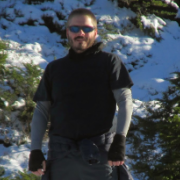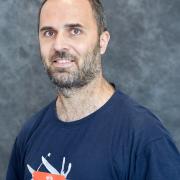Presentations

Scheduling tasks such as selecting the host to launch a new VM or receive a migrating VM are central to every cloud and virtualization management system. These systems use rules to make scheduling decisions, but rules alone leave certain efficiency gains unrealized. In this talk, learn about what makes the machine reassignment problem so tricky, and about how oVirt 3.5 implements a probabalistic VM scheduling optimizer based on the OptaPlanner project to help administrators better assign host resources.

We've come a long, long way since the days of installing software by compiling source and shoving it onto a system with `make install`. Last year, Docker containers were heralded as a way out of the complexities of managing software - but today we're faced with a slew of container offerings and things look more complex than ever. What's the solution?

Heartbleed, Shellshock, POODLE… With severe security vulnerabilities on the rise, how can Linux users protect their systems? Unattended package upgrades can help, but only if they are properly set up and monitored. For security updates that require a reboot in order to fully address vulnerabilities, should reboots also be automatic? For users who prefer to reboot manually, how does one tell when a reboot is required? Security upgrade process complexity can be compounded when using Docker containers, which requires its own specialized strategy to ensure systems are properly protected.
This talk will cover the new cache tiering and erasure coding features in Ceph that allow you to take advantage of fast storage devices (SSDs) for hot data and achieve better storage efficiency for cold data than traditional replication.

This talk will demonstrate Streaming-OODT, a data processing platform powered by open-source technologies including: Apache Spark, Apache Mesos, Hadoop, and Apache Kafka. Funded by NASA's Jet Propulsion Laboratory, Streaming-OODT combines state-of-the-art big-data technologies into a powerful and easy-to-use platform providing in-memory mapreduce processing for application to any big-data problems. It is based on OODT, an open-source data processing framework, and fills the niche for an end-to-end data processing system that encapsulates powerful technologies in a simple package.

Those of us who know PostgreSQL know that we are king. Yes, yes, let's be humble. We are "a" king. A king of AWESOME. Yes, our technology base is over 40 years ago but what a 40 years it has been! In this talk we will briefly discuss history but more importantly we will pointedly discuss why the fads you read in CTO magazine are not the fads of reality. I will show where the "alternative" databases are failing even as PostgreSQL cherry picks what works from their reasonable ideas and makes those ideas king of AWESOME.
Troubleshooting requires understanding the problem at sufficient depth to apply corrective measures. How do we gain that understanding? As the scientific method teaches us, we match theory to observation. This presentation gives an overview of process execution at the system call and kernel level (theory). We then review sysdig, a relatively new tool for system inspection (observation). Finally, we review several use cases where things are awry, matching our theory to our observation to find a basis for applying corrective action.


- Introduction to logging
- Free text logs vs. structured name value pairs
- Message parsing: creating value pairs from log messages
- Editing a pattern database by hand and by GUI
- Extending syslog-ng: writing plugins in Lua, Python, and Java
- Practical examples

The controversial systemd has absorbed udev, purported to replace syslog with the journal daemon, and is the preferred mechanism to manipulate the kernel's cgroups resource allocation system. Adoption by Debian and Ubuntu in addition to SUSE and Fedora assure its near ubiquity. Systemd is winning wide acceptance because it is simpler, easier to use, and better documented than its competition. I'll describe how to get started with systemd and perform some simple demos.

With everything we know now about spying and hacking from the hacker next to you in the coffee shop all the way to government surveillance, now’s as good a time as any to learn how to protect your privacy and anonymity. The Tails project provides a live bootable disk that sets up a secure anonymous session on any computer with all traffic routed over Tor. In this talk Kyle will discuss how to download and verify the latest Tails release, and demonstrate some of the more advanced features of Tails including its persistent encrypted storage.


